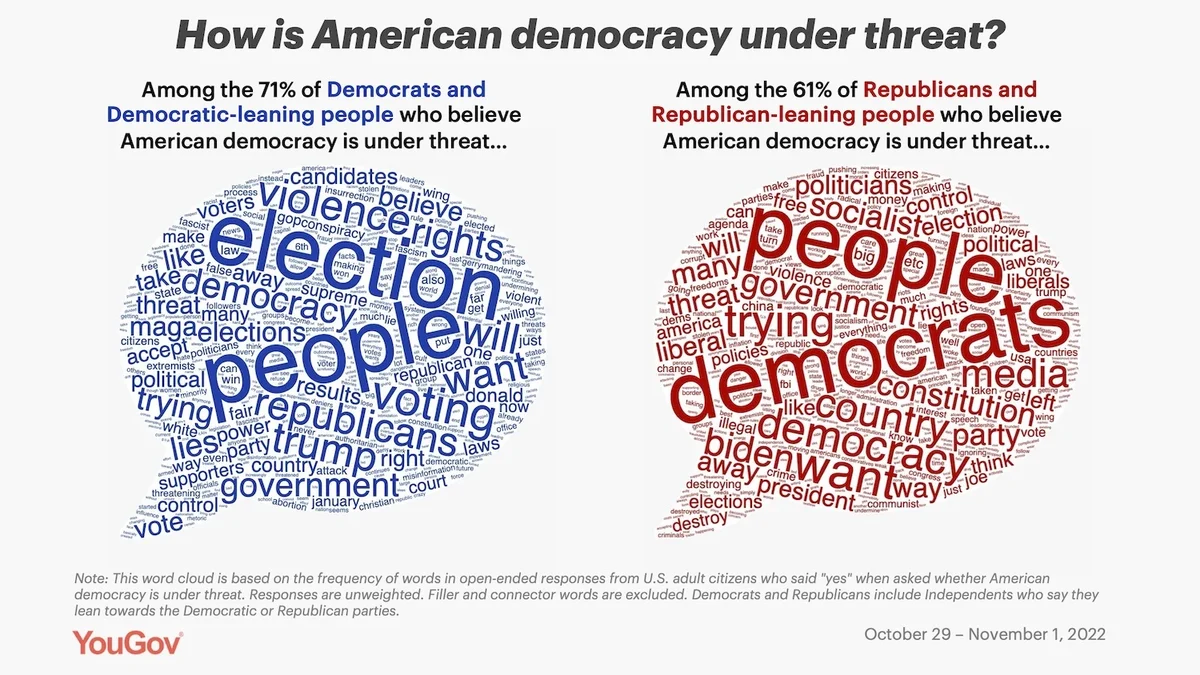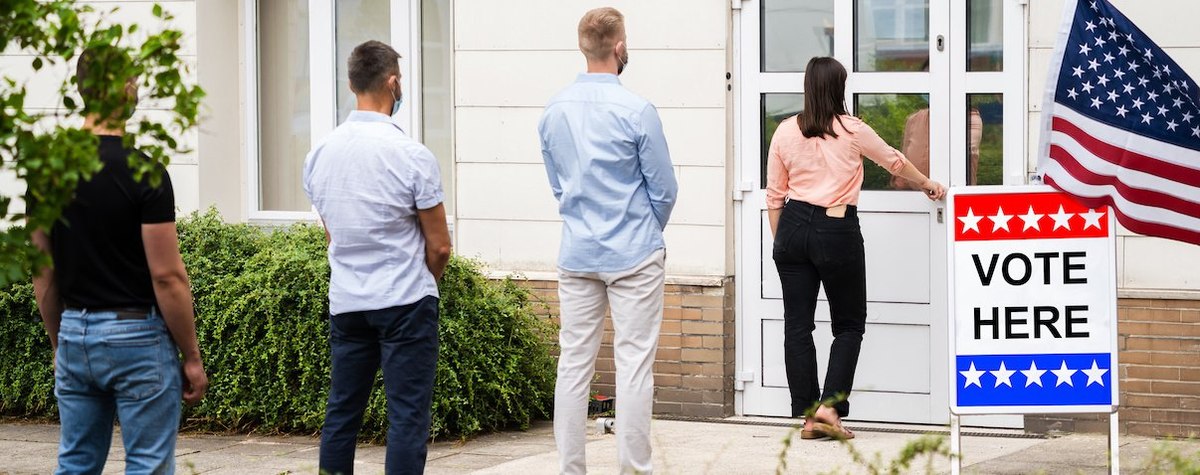The latest poll from the Economist/YouGov finds that Democrats and Republicans have worries when it comes to the upcoming election — beyond the outcome for their preferred party. Democrats are mostly worried about issues that could arise during the in-person voting process, such as voter intimidation or the spread of COVID-19; Republicans are more worried about vote fraud. Looking toward the outcome of the election, members of both parties anticipate that losing candidates will not accept the results. Beyond this specific election, Democrats and Republicans share the view that American democracy is under threat.
CONCERNS ABOUT VOTING
More Democrats than Republicans express multiple concerns about the in-person voting process. Most Democrats (55%) are at least somewhat concerned about the threat of violence at the polls, and 44% are concerned about the availability and accessibility of polling places. Most Republicans have little to no concern about each of these potential issues.
Since the 2020 election, concerns about the spread of COVID-19 at the polls have declined. In October 2020, 46% of Americans who said they intended to vote in-person on Election Day said they were at least somewhat concerned about the spread of COVID-19; this year, only 25% of likely in-person Election Day voters say they have this concern. Most Democrats (54%) remain concerned about COVID at the polls, and Democrats are less likely than Republicans to plan to vote in-person on Election Day.
Likely voters who say they're very or somewhat concerned about each of these three Election Day possibilities — violence, accessibility, and COVID — are far more likely to say they plan to vote early or by mail rather than in person on Election Day.
Many Republicans expect vote fraud, as other polls consistently have found: 71% of Republicans, but just 37% of Democrats, say it is somewhat or very likely that there will be significant fraudulent postal voting. Two-thirds of Democrats (68%) think it's somewhat or very likely that there will be violence at the polls, and majorities also say it is somewhat or very likely that eligible voters will be prevented from voting (67%), or that foreign countries will attempt to interfere in the process (63%). Among people who expect foreign interference, majorities expect China or Russia to be involved in the interference.
Two-thirds of Americans (66%) believe it is somewhat or very likely that losing candidates will not accept the election results. This includes 76% of Democrats and 60% of Republicans (though only 19% of Republicans consider it very likely). Members of each party differ on whether or not candidates should promise to accept the election's results in advance: 71% of Democrats and 42% of Republicans say candidates should commit to accepting the results. A majority of Republicans (60%) believe that the 2020 election was “stolen” from Donald Trump. This group is divided in terms of whether candidates should promise to accept election results in advance: 39% say they should and 33% say they shouldn't.
DEMOCRACY UNDER THREAT
While Democrats and Republicans share different views on potential problems with the upcoming election, majorities in each party do share one belief in common: Democracy is under threat. Likely voters are even more likely to believe this.
But just what the threat consists of divides the parties. Asked to describe it in their own words, Republicans and people who lean towards the Republican party mention losing rights and also criticize liberals, Democrats, and Biden — though a few also name Trump. They also cite the media and fear of socialism. Democrats and Democratic-leaners cite election deniers, Trump, and extremism. They also talk about loss of freedoms and voting rights. Some specify the MAGA movement, and even more blame Republicans.

– Carl Bialik and Linley Sanders contributed to this article
Polling by the Economist/YouGov was conducted on October 29 - November 1, 2022 among 1,500 U.S. adult citizens. Explore more on the Economist/YouGov methodology and data.
Image: Adobe Stock (Andrey Popov)











